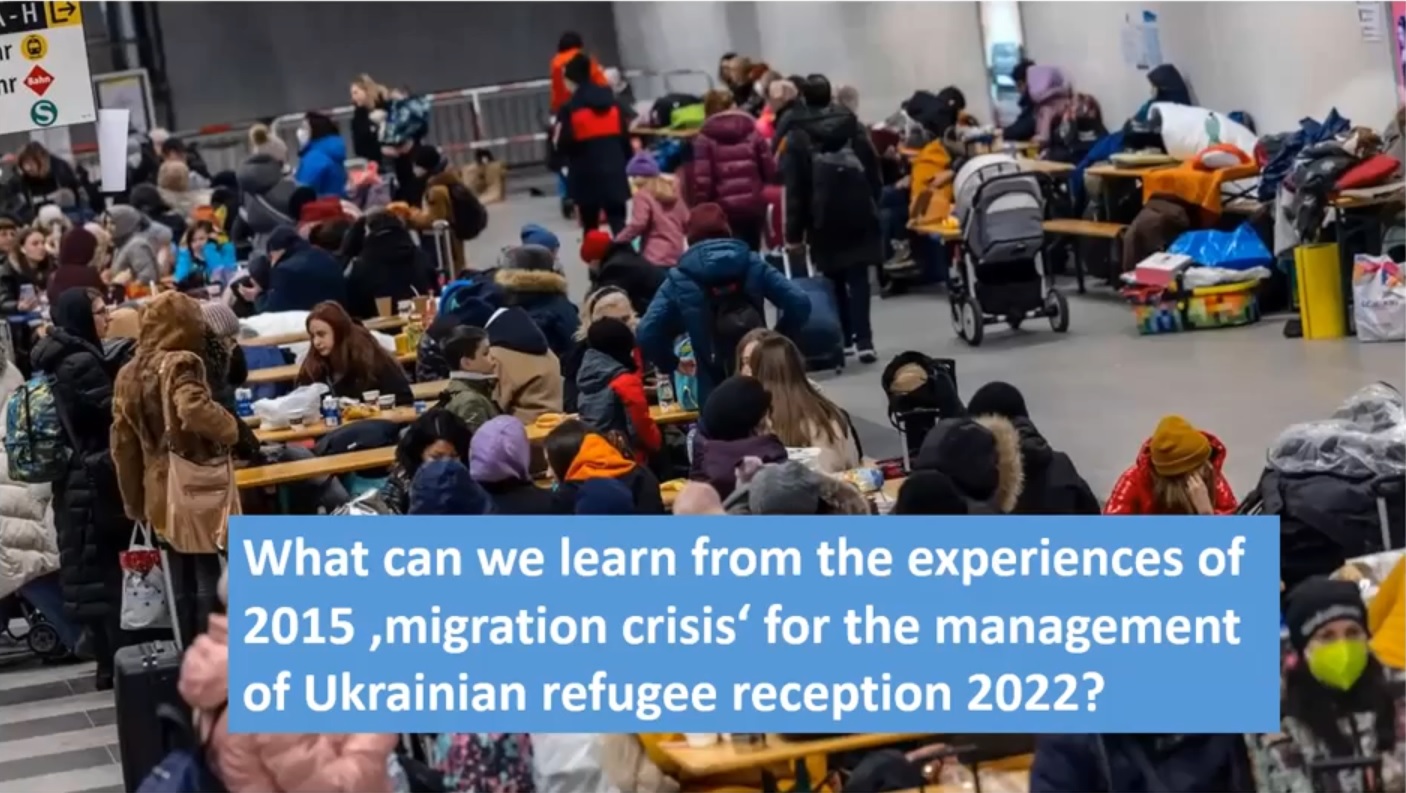What can we learn from the German experience of hosting post-2015 refugees for supporting refugees from Ukraine? The COPOCS webinar with prof. Birgit Glorius (17/03/2022)
Recently, due to the war in Ukraine, more refugees are seeking protection in Poland than ever before. In a situation when admission and support of such large numbers of refugees constitute an unprecedented challenge, we observe increased involvement of private individuals and groups engaged in helping refugees from Ukraine.
The role of such social involvement in the process of admission and integration of refugees was the topic of the COPOCS webinar with the presentation of professor Birgit Glorius, a German expert in the COPOCS project.
In her lecture, Prof. Glorius raises particularly current and important issues regarding the role of such social involvement in the context of the German experience since 2015 and analyses what we can learn and use in the current situation of the emergence of vast numbers of refugees from Ukraine.
The Abstract of the lecture:
In 2015 and 2016, the peak years of the so-called European migration crisis, which followed the Arab Spring and the start of the Syrian war in 2011, rounded 1.2 million asylum-seeking migrants arrived in Germany. While there was an overwhelming atmosphere of welcome and a large wave of solidarity, in the beginning, the manifold challenges and difficulties of a mass reception soon took over in public debate, and public authorities, as well as civil society, realized that refugee integration is a marathon rather than a sprint.
This lecture, based on a large body of research data on local reception and integration processes since 2015 in Germany, recalls the process of first and secondary reception of asylum-seeking migrants and major efforts, challenges, but also success stories of integration.
Prof. Birgit Glorius is a human geographer and professor of human geography with a focus on European migration research at TU Chemnitz, Germany. In her research, she focuses on recent migration phenomena in Europe, notably forced migration, and their effects on social cohesion and social formation.
18 Karowa St.,
Warsaw,
00-324
(Grant No UMA-2021/41/B/HS5/04071)
Website design by Tomasz Hryciuk-Ziółkowski | www.behance.net/tomasz_hryciuk
